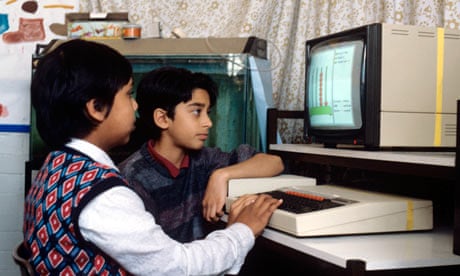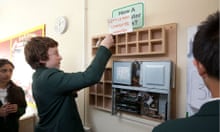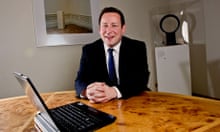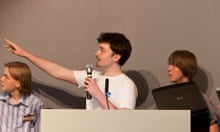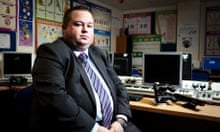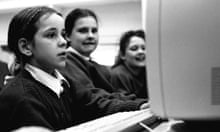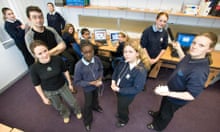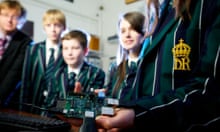Wednesday's announcement by the education secretary Michael Gove that school ICT courses are to be overhauled in favour of computer science involved the inevitable invocation of British mathematician and second world war code-breaker Alan Turing, but his actual contribution to computing is largely misunderstood.
Some have even suggested that the secrecy surrounding the code-deciphering Colossus machine created at Bletchley Park and Alan Turing's early death are responsible for Britain's IT lag. The reality is rather more prosaic. In the late 1940s and 1950s Britain was a computing pioneer, but so was the US. Before and during the war, the UK and US shared information on early computers; Turing himself studied at Princeton and visited the US during the second world war.
Historians argue that the American market for computers was so large and the needs of its cold war defence industry so great that it was inevitable that the US would dominate the early history of computing. And although the history of Silicon Valley seems to be littered with glittering successes by twentysomethings creating wealth almost from nothing, its secret history reveals that US defence spending helped give it a tremendous headstart.
But times have changed enormously. The computer market is now truly global, the internet has removed barriers to communication and collaboration, and something that was hard to imagine in Turing's time is a reality: computers are absolutely everywhere.
The manufacturing of computers has become mundane and outsourced to the cheapest location – what remains is Turing's real legacy: software. It's the fungible product of intellectual labour that can make a machine play music, run the numbers in a spreadsheet, or even describe the physical construction of another machine. With even Apple's products declaring that they are only "Designed in California" (the manufacturing is left to China), it's in software and design – be it computer games, business applications, the latest websites, or the core of silicon chip – that Britain can hope to excel.
Although it's said that Turing invented the computer, his invention, which we now call the universal Turing machine, was a purely theoretical device (it even involved having an infinitely long tape on which to record calculations). What mattered was that his machine could be told what to do by instructions written on the tape: his machine was programmable and all Turing's pioneering work was about what was possible (and impossible) with what we now call software.
Even Britain's largely unknown and enormously successful silicon chip company, ARM (which undoubtedly designed the central processor in your phone or car GPS) really produces a type of software: the description of a computer chip. They don't manufacture anything physical. Other companies use ARM's chip software, called a core, to produce actual chips. Apple's A4 chip that powers the iPad and latest iPhone and iPods contains an ARM core: ARM sold Apple the software that describes the chip, Apple incorporated it and Samsung actually builds it.
ARM itself is a byproduct of a previous British initiative to teach computing: the 1981 BBC computer literacy project. The associated BBC Micro was designed and manufactured by Cambridge-based Acorn Computers, which went on to design the first ARM chip.
Today, 30 years on, another Cambridge-based organisation called Raspberry Pi has developed a tiny computer suitable for use in schools that incorporates an ARM processor, will cost about £20 and could be used as part of the new computer science curriculum.
Although it may seem that Britain lost the headstart it received with Turing, the real loss occurred in the last 30 years, when the great beginning made by the BBC was followed up by the unhelpful and office skills-focused ICT. ICT only taught children to be users, not programmers. And how shameful that is when what Turing showed was that it's the ability to program the computer that matters.
People often argue that children don't need to know how to program just as they don't need to be a car mechanic to drive a car. The analogy is useless because a car is a one-use machine (it moves), whereas a computer's very essence is its programmability, its ability to be a universal machine.
In 2012 we celebrate Alan Turing Year and the 100th anniversary of his birth. Rather than looking backward and lamenting the current state of British computing, we should look forward to a brighter future built by today's 11-year-olds. With projects such as Raspberry Pi, a new computer science curriculum and the realisation that Turing's ideas are as true today as they were in 1936, it's time for a British computing renaissance. Let's go back to the 1980s and get it right this time.
